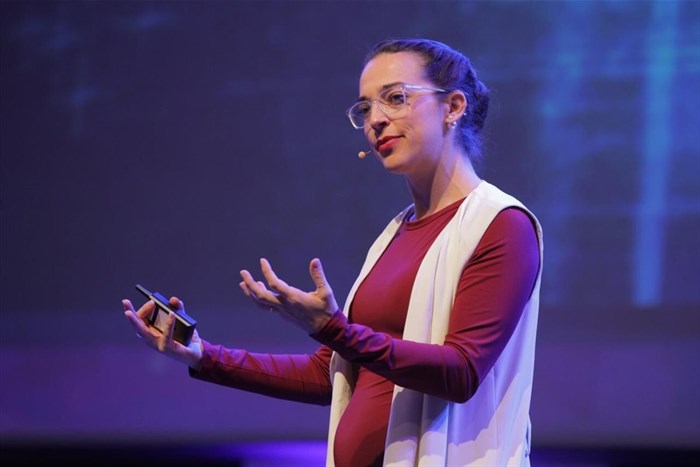
We are swimming in data. In a world where data and information are so rich, what becomes scarce? Information consumes a resource - your attention. How do you augment AR and VR in a business today?
A wealth of information creates a poverty of attention.Information overload
A wealth of information creates a poverty of attention. Your attention is one of the most valuable resources you have so the way we model, access and deploy information changes the world we create.
We’ve moved from model to abstract. Everything today is in our pockets. Our smartphones are our cyborg brains.
So how do we navigate this information overload? AR and VR is contextualised information.
These technologies provide experience in a moment of time, a moment that matters now. Cognitive scientists are only just catching up.
Access to education is not fully democratised yet we learn in an education system based on the written word. What if we could feel interactive and embodied learning? This is where VR and AR come in – they’re both tools to learn in fundamentally new ways.
The applications of these experiences will change our lives going forward and the proliferation of digital worlds. What kind of problems can we solve differently? The history of great ideas is not about the ideas themselves but about the representation of these ideas. You cannot scale an idea without being able to represent it (well).
We’re still caught in the paradigm of print. The printing press was an amazing revolution in human knowledge but it also constrains us as there are now many more ways of knowing, learning and understanding. How can we gain more of the world’s knowledge in a multi-sensory paradigm? Virtual worlds which will fundamentally change our perception and allow us to alter different experiences.
With VR, the form factor has changed exponentially. From wired to mobile to mixed reality, we can now move seamlessly between these worlds. We’ve moved from military to enterprise and are slowly heading into the consumer space. As Tim Cook said: “Life without AR will be unimaginable in a few years.”
As price points diminish, the consumer marketplaces open up. But to get AR and VR right, you need meaningful content as well as hardware that provides a good user experience.
AR and VR allow us to do things more efficiently (if well-designed) and think entirely new kinds of thoughts but we need to leverage this technology to understand its long-term cognitive impact.
We still need more research on the development of VR and AI from a security and ethics perspective. And what about digital rights? Who owns your data? What makes sense – ethically – as a society?
Embrace the grey area between pragmatism and imagination.